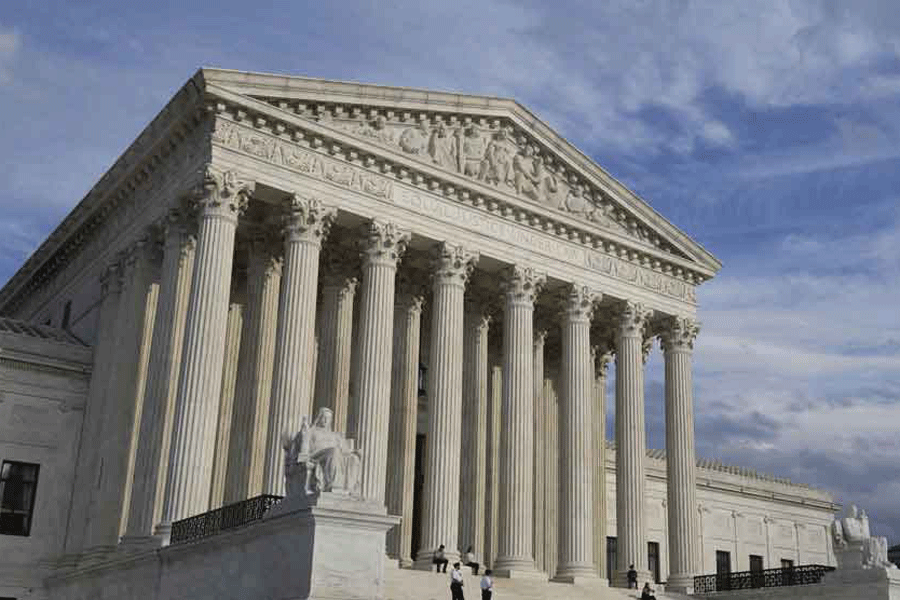As a legal matter, the Supreme Court’s rejection of race-conscious admissions in higher education does not in itself impede employers from pursuing diversity in the workplace.
That, at least, is the conclusion of lawyers, diversity experts and political activists — from conservatives who say robust affirmative action programmes are already illegal to liberals who argue that they are on firm legal ground.
But many experts argue that as a practical matter, the ruling will discourage corporations from putting in place ambitious diversity policies in hiring and promotion — or prompt them to rein in existing policies — by encouraging lawsuits under the existing legal standard.
After the decision on Thursday affecting college admissions, law firms encouraged companies to review their diversity policies.
“I do worry about corporate counsels who see their main job as keeping organizations from getting sued — I do worry about hyper-compliance,” said Alvin B. Tillery Jr, director of the Center for the Study of Diversity and Democracy at Northwestern University, who advises employers on diversity policies.
Programmes to foster the hiring and promotion of African Americans and other minority workers have been prominent in corporate America in recent years, especially in the reckoning over race after the 2020 murder of George Floyd by a Minneapolis police officer.
Even before the ruling in the college cases, corporations were feeling legal pressure over their diversity efforts. Over the past two years, a lawyer representing a free-market group has sent letters to American Airlines, McDonald’s and many other corporations demanding that they undo hiring policies that the group says are illegal.
The free-market group, the National Center for Public Policy Research, acknowledged that the outcome on Thursday did not bear directly on its fight against affirmative action in corporate America. “Today’s decision is not relevant; it dealt with a special carve-out for education,” said Scott Shepard, a fellow at the centre.
Shepard claimed victory nonetheless, arguing that the ruling would help deter employers who might be tempted to overstep the law. “It couldn’t be clearer after the decision that fudging it at the edges” is not allowed, he said.
Charlotte A. Burrows, who was designated chair of the Equal Employment Opportunity Commission by President Joe Biden, was also quick to declare that nothing had changed. She said the decision “does not address employer efforts to foster diverse and inclusive workforces or to engage the talents of all qualified workers, regardless of their background”.
Some companies in the crosshairs of conservative groups underscored the point. “Novartis’s DEI programmes are narrowly tailored, fair, equitable and comply with existing law,” the drugmaker said in a statement, referring to diversity, equity and inclusion. Novartis, too, has received a letter from a lawyer representing Shepard’s group, demanding that it change its policy on hiring law firms.
Beyond government contractors, affirmative action policies in the private sector are largely voluntary and governed by state and federal civil rights law. These laws prohibit employers from basing hiring or promotion decisions on a characteristic like race or gender.
The exception, said Jason Schwartz, a partner at the law firm Gibson Dunn, is that companies can take race into account if members of a racial minority were previously excluded from a job category — say, an investment bank recruiting Black bankers after it excluded Black people from such jobs for decades. In some cases, employers can also take into account the historical exclusion of a minority group from an industry.
In principle, the logic of the Supreme Court’s ruling on college admissions could threaten some of these programmes, like those intended to address industrywide discrimination. But even here, the legal case may be a stretch because the way employers typically make decisions about hiring and promotion differs from the way colleges make admissions decisions.
“What seems to bother the court is that the admissions programs at issue treated race as a plus without regard to the individual student,” Pauline Kim, a professor at Washington University in St Louis who specialises in employment law, said in an email. But “employment decisions are more often individualised decisions”, focusing on the fit between a candidate and a job, she said.
The more meaningful effect of the court’s decision is likely to be greater pressure on policies that were already on questionable legal grounds. Those could include leadership acceleration programmes that are open only to members of underrepresented minority groups.
Many companies may also find themselves vulnerable over policies that comply with civil rights law on paper but violate it in practice, said Mike Delikat, a partner at Orrick who specialises in employment law. For example, a company’s policy may encourage recruiters to seek a more diverse pool of candidates, from which hiring decisions are made without regard to race. But if recruiters carry out the policy in a way that effectively creates a racial quota, he said, that is illegal.
New York Times News Service










